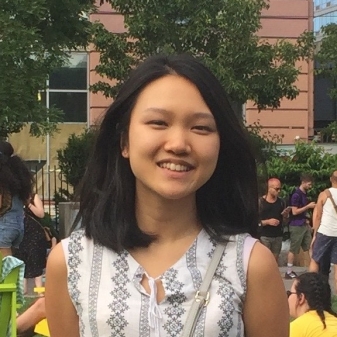When she arrived at Penn, Ivy Tse, C ’19, already knew she was interested in human behavior. A few cognitive sciences course made her more certain of her academic path and before long, she was ready to pursue her own research and conduct experiments. With support from the Center for Undergraduate Research and Fellowship (CURF), Tse spent this past summer and fall designing a study that uses video games to measure how humans learn from their social interactions. Her project, “Facial Perception and Social Value Learning,” will help determine the neural mechanisms that filter different types of sensory information and reveal how individuals select valuable companions.
“I wanted to study psychology because I was interested in learning about human behavior and what motivates us,” says Tse, a cognitive science major with a concentration in cognitive neuroscience and an alumna of the Integrated Studies Program at Penn. “Then I realized that there have been so many studies that take advantage of technology to determine how the mind works. I really wanted to learn more about that.”
The first thing Tse learned was that the rigor of experimental design is crucial to producing meaningful results. “The biggest part of our work is trying to design and interpret studies that are valid for whatever concept we are studying,” she says. “Our ability to learn through social context is not well-defined; when interacting with someone, the brain experiences the reward of engagement while sensorimotor neurons are incorporating abstract traits about a person that may be valuable at a later time. One such trait is generosity, and because of that, a companion willing to share resources is worth remembering.”
Tse designed the study as a two-player video game. Before the game begins, study subjects pick between potential teammates, represented by an avatar of a human face. As they play the game with their chosen partner, subjects will learn that some partners are more generous with resources needed to achieve success in the game. In the future, Tse will take an fMRI brain scan of these subjects while they are looking at images of the avatars.
The pilot studies she performed so far revealed the computer-generated avatars were not distinctive enough for her subjects to differentiate. After tweaking the simulation software to produce a more distinct set of faces, her subjects were able to learn which avatars represented a more generous player.
Recently, Tse was awarded the Millstein Family Undergraduate Research Grant, which will support the continuation of her project for the spring semester. “We think the experimental parameters are sufficiently well designed to produce meaningful results now," Tse says.



